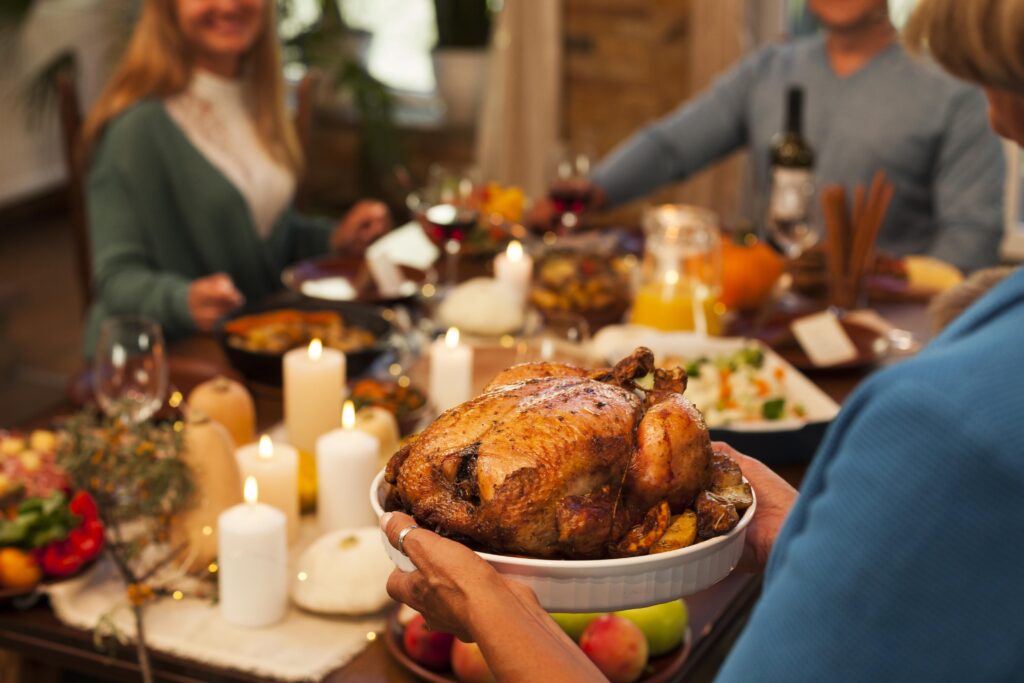
Welcome to holiday season 2025! The weeks ahead will bring wonderful family time and social gatherings. They will also bring the potential for chatting about hot topics like health, diet, and nutrition. These challenging subjects may not be easy to discuss at the holiday table. Let’s think of some ways to navigate conversation to a better place.
Redirect Conversation
“I love that there are so many opportunities for people to find something that works for them.”
With this simple statement, we remember that we all benefit from making our way to better health. It highlights the importance of finding a path that helps us meet and sustain wellness goals to reduce our risk of developing chronic disease. The path that works is personal. This is important to remember, both for us and for our loved ones.
“What’s your favorite thing that you cooked or ate recently?”
Food is wonderful, delicious, and enjoyable. Moving the focus here diffuses diet-focused conversation. You can highlight some wonderful cooks or restaurants you love. Or chat about the meaningful holiday dishes you look forward to sharing together.
“I’m so happy things are going well for you!”
While you may not completely understand or agree with a loved one’s lifestyle choices, you can still celebrate their happiness. Acknowledge their energy and enthusiasm rather than question how they got there. Creating new habits and putting our health first is not easy (though well worth it). Honoring another’s success at adopting a new lifestyle is kind and thoughtful.
“What does 6–7 mean anyway?”
Or “what do you think about Taylor Swift’s new album?” Put questions out to the holiday table, especially a multigenerational group, to spur conversation. While it may leave the adults confused about some trends, it will likely bring up lots of laughs and quiet any other conversation.
Additional Considerations
If a family member is on a journey toward better health, they’re likely protective of their path. And if previous attempts haven’t been successful, they may be so protective that they come across as defensive. It helps to have compassion and remember they may be coming from a place of fear—that the success they’re experiencing will wane or disappear altogether. Keeping this in mind may lead to a more peaceful conversation (or at least a more understanding one).
You may be concerned about a family member. Maybe they have lost too much weight, or seem weak or unwell. Or possibly you’re worried about supplements or other methods they’re using. If this is the case, it may be very difficult to address. Instead, consider asking questions about how their doctor feels about their health status. This keeps the focus on their medical team and the experts they trust. Continue to stay in touch with loved ones you’re worried about and let them know you are thinking about them.
If you leave a gathering with questions or concerns about a dietary approach or wellness concept, please use hospital and university websites for your research. And consider professional sites for the Academy of Nutrition and Dietetics, American Medical Association, and National Institute of Health for expert, science-based information.